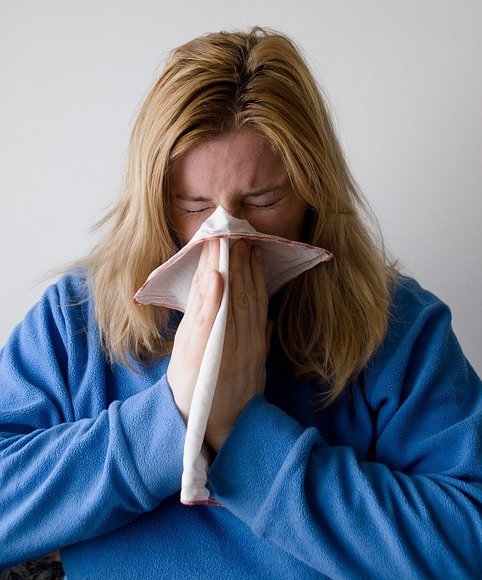Why We Get Sick When the Weather Changes and What Can Be Done to Avoid It
If last Sunday was any indication, the temperatures in Beijing are about to drop, and that means many of us, parents and children alike, might come down with sickness ranging from a minor nuisance to something outright debilitating. But what exactly is it about the falling temperature which causes an uptick in illnesses? Let’s examine the science behind why we get sick when the weather changes.
The cold, hard facts
Right off the bat, we can dispel one myth that effectively has people preemptively reaching for the tissue box when the leaves begin to change: the notion that cold weather, in and of itself, has the power to make us sick.
According to Internal Medicine Specialist, Kittu Jindal Garg, MD, "A lot of the viruses that cause the common cold are shown to cause outbreaks more frequently in the early to late spring and early to late fall." However, he goes on to explain that, “really there’s still no evidence to show that it’s the cold weather itself that’s making us sick.”
Rather, it’s a bunch of complementary forces that flourish during cold weather. But before we go into those, we can safely say that if you’re an otherwise healthy person, merely standing out in the cold will emphatically not make you sick.
But it's not quite that simple...
Having said that, there are a number of complications cold weather promotes, which, when taken together, create a sort of perfect storm, and wind up landing people in bed with an achy body and runny nose.
To begin with, the two viruses which most often cause the common cold, rhinoviruses, and coronaviruses, do in fact thrive in cool weather. So as summer gives way to fall, and the city is enveloped in an autumnal chill, the common cold makes itself at home in tiny airborne droplets called aerosols, which people then inhale. Once inside your nasal passages, the virus goes about the business of replicating all throughout your upper respiratory tract.
Similarly, influenza viruses, or those that cause the common flu, “may also survive and spread more easily in cold and dry air,” says Jamie Eske at Medical News Today. In fact, Eske cites one study in the Journal of Virology which found that, in a study on guinea pig populations, “the ideal temperature for the influenza virus to spread is 5 degrees Celsius, or 41 degrees Fahrenheit.” For reference, at the time of writing, Beijing was 49 degrees Fahrenheit with 30 percent humidity.
In addition to happy little virus particles finding ideal conditions in which to exist, it’s also known that “cold, dry air cuts down on the healthy mucus that’s supposed to coat areas of your respiratory system, leaving airways more susceptible to unpleasant microbial visitors.” This also accounts for why you get a runny nose. That is, the body attempts to overcompensate for a lack of mucus in the nasal passages, and thus you, or your child, become a drippy, unhappy mess.

Aside from the blossoming populations of viruses in cooler weather, the drop in temperature can also have an effect on the immune system in a variety of ways. For instance, a lack of sunlight means that people are getting reduced amounts of Vitamin D, which according to some research is essential to maintaining a healthy immune system. What’s more, during particularly harsh winter months, people have a tendency to spend more time indoors and, of course, with increased close contact comes an increased chance of spreading diseases. If that wasn’t bad enough, to prevent heat loss, the respiratory tract constricts when breathing in cold and dry air which in turn makes it more difficult for white blood cells to reach the mucous membranes and consequently lessens the body’s ability to fight off germs.
So what can be done about it?
Unfortunately, there’s no hidden secret or grand plan to stave off illness. Just a bunch of well-known preventative measures we can take to hopefully stay happy and healthy throughout the coziness of fall and winter. These include getting plenty of sleep, staying hydrated (with that most common of Chinese medicines, hot water), avoiding sick people, and washing hands regularly (cold viruses can live on the skin for up to two hours). What’s more, if the darkness overtakes you and you can’t remember the last time you saw the sun, vitamin D can be replenished in the body with supplements or foods such as fish, mushrooms, and eggs.
So while it isn’t the weather that’s making you sick per se, it is creating an environment that many things which make you sick find particularly suitable for their own well-being, at the expense of yours.
Feeling cold? Not to worry, warm weather and blue skies await this weekend's Pizza Fest!
This article originally appeared on our sister site beijingkids.







